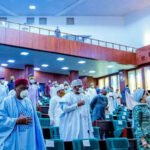The federal government’s proposed ban on the importation of solar panels, while aimed at promoting local production, risks deepening Nigeria’s ongoing energy and economic crises.
Development Diaries reports that the Minister of Science and Technology, Uche Nnaji, recently announced plans by the federal government to stop the importation of solar panels as part of efforts to boost local production and drive Nigeria’s clean energy transition.
In reaction to this, energy and trade experts have expressed mixed reactions and have raised concerns about its potential impact on the country’s renewable energy drive, job creation, and local manufacturing capabilities.
Some believe that while encouraging local production is an appropriate objective, banning imports at this stage could be premature.
According to a report by The Guardian, Nigeria needs to brace up for about a 150 percent rise in the cost of solar installations, the slowdown in the energy transition, and an increase in electricity challenges following the implementation of the ban.
Firstly, with millions already grappling with inflation, skyrocketing energy prices, and poor electricity supply, the immediate effect of such a ban would be a sharp rise in the cost of solar installations, reportedly by as much as 150 percent.
This would place clean energy solutions further out of reach for households and small businesses desperately seeking alternatives to the unreliable national grid.
The federal government must understand that small and medium-sized enterprises (SMEs), which form the backbone of Nigeria’s economy, are increasingly turning to solar energy to stay afloat amid diesel and petrol price hikes.
A sudden import ban would drastically inflate the initial costs of setting up solar systems, pushing many SMEs back into energy poverty or forcing them to shut down altogether.
For an economy already facing mass unemployment and dwindling purchasing power, the ripple effects could be devastating and worsen social and economic inequalities.
Furthermore, Nigeria’s local solar manufacturing sector, although growing, is not yet sufficiently mature to meet national demand both in quantity and quality.
There is a need to first assess if Nigerian manufacturers have the capacity to produce high-quality solar panels at scale.
Without strong local manufacturing capacity, a ban on imports could create monopolistic market conditions, inflate prices, lower product quality, and erode consumer trust in solar energy solutions.
Protectionist policies that aren’t well thought out have often caused market distortions, smuggling, and higher prices in the past, such as when food imports were banned.
Critics have rightly pointed out that a phased and strategic approach would better serve Nigeria’s long-term goal of energy self-sufficiency.
Building an enabling environment through incentives for local manufacturers, partnerships with global brands to set up local plants, quality assurance frameworks, and public education, should precede any restrictive measures.
Otherwise, the country risks stalling its modest progress in renewable energy adoption and worsening the energy poverty it seeks to solve.
Development Diaries calls on the Honourable Minister of Science and Innovation, Uche Nnaji, to reconsider the proposed ban on solar imports at this critical time.
Nigerians need immediate relief, not additional burdens. We call on the minister to champion a phased, strategic plan that first strengthens local capacity, secures quality standards, and builds competitive markets before any restrictions are imposed.
Let policies be guided by the realities of today, while planning smartly for the Nigeria of tomorrow.
Photo source: MarkBuckawicki and Uche Nnaji







